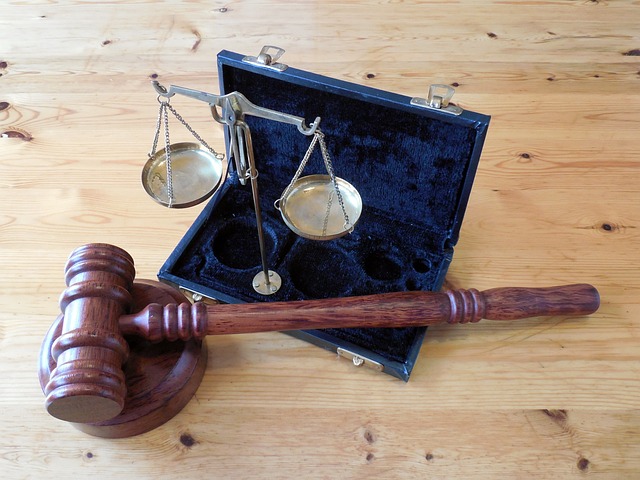Probate services provided by specialized probate lawyers are crucial for efficient estate administration. They guide executors through complex processes, ensuring compliance with local laws, and handle tasks like will validation, court assistance, estate distribution, legal advice on taxes and challenges, and upholding rights of all parties involved. When dealing with complex matters, engaging a probate lawyer is key to managing estate administration, avoiding mistakes, delays, and legal challenges during probate proceedings. They offer probate services for substantial estates, intricate wills, or beneficiary disputes, easing the burden on executors by managing paperwork, taxes, and other duties.
Navigating the complex world of probate can be overwhelming. Understanding probate services and their pivotal role in estate administration is the first step. This guide delves into the intricacies, offering insights on when to engage a probate lawyer for efficient management of probate processes. From unraveling executor duties to highlighting the importance of probate court assistance for seamless estate settlement and distribution, we provide essential legal help to validate wills and ensure an orderly transition.
- Understanding Probate Services and Their Role in Estate Administration
- When to Engage a Probate Lawyer for Efficient Manage Probate Processes
- Unraveling Executor Duties: Responsibilities of an Estate Executor
- The Importance of Probate Court Assistance in Smooth Estate Settlement and Distribution
Understanding Probate Services and Their Role in Estate Administration

Probate services play a pivotal role in the smooth administration of estates following a person’s death. These specialized legal services, typically provided by a probate lawyer or attorney, ensure that all aspects of estate settlement are handled efficiently and in accordance with local laws and regulations. A probate lawyer acts as a guide for the executor (or estate administrator), assisting them in managing probate proceedings and fulfilling their duties.
One of the primary responsibilities of a probate lawyer is to help validate and manage wills, ensuring they meet legal requirements. They also facilitate communication with the probate court, where documents related to the estate are filed and reviewed. This includes preparing necessary paperwork for estate distribution, which can be complex given various factors like beneficiaries’ ages, asset types, and any specific instructions in the will. Additionally, a probate attorney provides crucial legal help throughout probate proceedings, offering guidance on tax implications, potential challenges, and ensuring the rights of all involved parties are respected.
When to Engage a Probate Lawyer for Efficient Manage Probate Processes

When navigating complex probate processes, engaging a probate lawyer is often the best step to ensure efficiency and accuracy. While some cases may be straightforward and can be managed without legal assistance, many factors can make it crucial to seek professional help. For instance, when dealing with substantial estates, intricate will provisions, or disputes among beneficiaries, a probate lawyer provides invaluable guidance. They possess in-depth knowledge of estate administration, enabling them to navigate the intricacies of probate court procedures, validate wills, and ensure proper documentation.
Moreover, probate lawyers can significantly ease the burden on executors by assisting with various duties, including preparing and filing necessary paperwork, managing tax implications, and facilitating the distribution of assets according to the testator’s wishes. Their expertise helps avoid costly mistakes, delays, and potential legal challenges that may arise during probate proceedings, ensuring a smoother estate settlement process.
Unraveling Executor Duties: Responsibilities of an Estate Executor

When a loved one passes away, the process of estate administration can be complex and emotionally challenging. One of the key roles in this process is that of an estate executor, who is responsible for managing the deceased’s assets and ensuring their proper distribution according to the will or trust. A probate lawyer can provide invaluable assistance during these sensitive probate services, guiding clients through every step of estate settlement.
The executor duties encompass a range of responsibilities, including gathering and validating the will, identifying and locating all assets, managing financial affairs, paying outstanding debts, and preparing tax returns. They must navigate probate court assistance, ensuring compliance with legal requirements, and may need to sell off assets or manage investments to facilitate the estate distribution process. An experienced probate attorney can help to streamline these tasks, offering guidance on executor responsibilities and providing the necessary probate legal help to ensure a smooth transition during this difficult time.
The Importance of Probate Court Assistance in Smooth Estate Settlement and Distribution

When an individual passes away, their estate often requires careful management to ensure a smooth transition and fair distribution according to their wishes. This is where probate court assistance becomes indispensable. The process of probate involves several complex legal procedures, including validating the will, identifying and valuing assets, and ensuring proper tax reporting. A competent probate lawyer or attorney can offer invaluable support throughout these proceedings.
Their expertise lies in guiding the executor (the person named in the will to manage the estate) through the intricate tasks of estate administration. This includes managing probate services, preparing necessary legal documents, and representing the estate in probate court if required. By leveraging their knowledge of local laws and regulations, a probate lawyer can help streamline the entire process, ensuring that the wishes of the deceased are respected and that all parties involved receive their rightful share of the estate as per the will’s provisions.
Probate services play a pivotal role in navigating complex estate administration and ensuring a smooth transition during probate proceedings. Engaging a probate lawyer can significantly streamline the process by providing expert guidance on managing probate, validating wills, and overseeing executor duties. With their assistance, individuals can focus on honoring their loved ones’ legacies while leaving the intricate legal aspects to specialized professionals. Probate court assistance is invaluable for a swift and accurate estate settlement and distribution, making it an indispensable component in the overall probate process.
